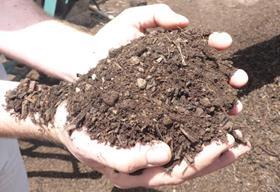
Organics specialist Eosta and sustainability group Soil & More Impacts have launched a new website together to assist growers in combatting global farming challenges in a sustainable manner.
As farmers across the world face the worsening consequences of a changing climate, Eosta and Soil & More argue that sustainable, climate-smart agriculture is the solution.
The companies have developed the Farming & More open-source platform in order to create a one-stop shop for farmers to find easy-to-use and practical tips.
The website is available to all and highlights the best practices required for sustainable farming, including video courses on composting and biomass management; cover crops and mulch management; controlling erosion; biological control of pests and diseases, and crop rotation.
“Today’s agricultural challenges tend to appear complex and overwhelming, which makes implementing change rather difficult,” explained Soil & More’s CEO, Tobias Bandel. “The good news is that there are a few key farming practices that can help to tackle some of these challenges. We have used existing knowledge and data to put together practical and user-friendly videos and information sheets, which can also be tested through an online exam.”
Volkert Engelsman, CEO of Eosta, added: “Our growers are the backbone of our business and together with the experts from Soil & More Impacts we have been supporting them whenever we can. Through the Farming & More website we can reach more organic heroes directly and that is not only good news for the Nature & More growers but for the entire global sustainable farming community.
The launch comes at a time of growing concern over climate change and the role of modern agricultural practices, with many experts viewing organics as key to tackling global warming, biodiversity loss and soil depletion.
Rob Percival, head of policy for food and health at the Soil Association, last month concluded that “agroecological farming, including organic, offers our best hope of responding to climate change”.
“We urgently need to reduce agricultural greenhouse gas emissions,” he said, “but we must also protect soil health, nurture biodiversity, and build resilience into agricultural systems.”



